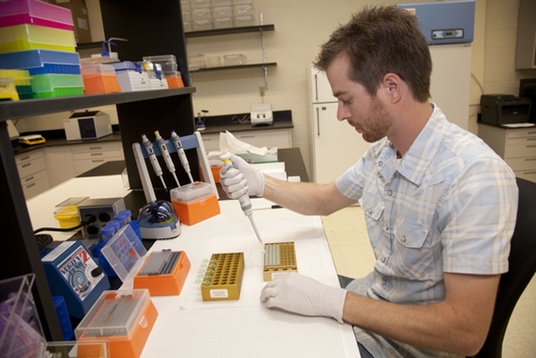Sat 4/22 @ 9 AM
It’s still early but 2017 could go down as the year of marches and protests. So far this year, high-profile events involving women and immigrants have garnered national attention. The next such affair is March for Science Cleveland, which takes place April 22 at Public Square.
The free Rock Hall City event, which is actually a satellite march to the national March for Science taking place in Washington, D.C., is meant to underscore the vital role scientific research plays in everyday life, as well as the impact of science in Northeast Ohio.
Supporting March for Science Cleveland, which also includes activities for adults and children, are the George Gund Foundation, the Cleveland Foundation, Cleveland Clinic, Cleveland Museum of Natural History, Bike Cleveland, Cleveland State University, Cuyahoga County, Greater Cleveland Aquarium, Great Lakes Science Center, Holden Forests & Gardens, the MetroHealth System and West Creek Conservancy.
CoolCleveland talked to March for Science Cleveland participant Gavin Svenson, who is currently the Cleveland Museum of Natural History’s curator and head of Invertebrate Zoology.
Let’s start with the most obvious question, what is the March for Science?
The March for Science is a gathering of scientists, the public and interested people who believe in the value of science and understand its connection to society. The idea came out of essentially a recognition that the place science has our society is being marginalized. We want to sort of support the role that science has in everyday life. I think people don’t often recognize the pervasiveness of what science does for us — everything from creating jobs, leading to technology and functioning in our daily lives in terms of transportation to our cell phones, the food we eat and the medicine we receive. It’s fundamental to most modern life and the motivation behind the March for Science. There are a lot of satellite marches all across the United States. What makes Cleveland unique is that there’s actually a partnership of institutions that have gotten together and voiced their support.
What’s the reaction been so far to March for Science Cleveland?
It’s been really positive. People are oftentimes surprised of what the role is and how deep it is to what we have here. Also when they learn more about it, they’re surprised at the limitations in research funding, what basic science means, how it feeds into other aspects of science and the kind of science that influences their daily lives and the interconnectedness of it all. We’re trying to get this broader messaging to the public that it’s all interconnected. You can’t just marginalize it or put it aside or not pay attention to the data because ultimately, we can’t make decisions for our future based on opinions, beliefs and ideas. It’s defensible and far more structured to actually make decisions based on what the data is actually telling us.
Is the March for Science movement a product of the Trump Administration’s recent budget cuts, which included science funding?
The timing is definitely related to the broader trend. What we’re seeing has been happening for a long time. If you think about the climate change debate, the data is in. The consensus has been reached in terms of that, but there’s still debate about the subject. And this is not a direct reaction to anything that the Trump Administration has proposed, but it’s a response to a trend that has grown to a level that is alarming to many scientists. This is not a protest to Trump’s budget. It’s not a protest at all. It’s an awareness campaign.
Finally, are you worried March for Science will be viewed as a protest march in support of climate change?
We can’t control how it’s perceived, but ultimately, we’re trying our best to encourage positive messaging. For example, think of the current Trump Administration budget proposal. If this was a protest, it would be a reaction specifically to things that are being cut, but science is so diverse, so grand and so pervasive across everything. There’s science in the defense department that’s receiving budget increases. So it’s not proper to label this as a protest and a politicized thing, because this is a celebration of the science that is getting budget increases and the same kind of science that gets decreases. We can’t help what a current administration is actually doing on a year-to-year basis. The only thing we can do is make the public more aware of the role of science. This is not a climate change march. This is a support of the science that looks at what climate change might be and how it might influence us in the future.
